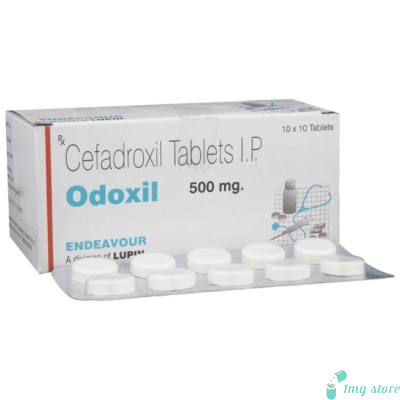Erythrocin Tablet (Erythromycin)
Buy Erythromycin is a widely used antibiotic medication that belongs to the macrolide class of antibiotics. It is available in various formulations, with Erythrocin and Ery-Tab being two of the most common brand names for Erythromycin tablets.
What is Erythromycin Tablet?
Erythromycin is a widely used antibiotic medication that belongs to the macrolide class of antibiotics. It is available in various formulations, with Erythrocin and Ery-Tab being two of the most common brand names for Erythromycin tablets. Erythromycin is a versatile antibiotic known for its efficacy against a wide range of Bacterial Infections. It is often prescribed by healthcare professionals to treat various conditions, and its mechanism of action involves inhibiting bacterial protein synthesis. In this comprehensive guide, we will delve into the dosage information, uses, side effects, precautions, and potential drug interactions associated with Erythromycin Tablets (Erythrocin and Ery-Tab).
Erythromycin Dosage Information:
Dosage recommendations for Erythromycin Tablets (Erythrocin and Ery-Tab) may vary depending on the specific condition being treated, the patient's age, weight, and overall health. It is crucial to adhere to the prescribed dosage and follow the healthcare provider's instructions. Erythromycin tablets are typically taken orally with or without food.
For adults and pediatric patients:
Erythrocin (Erythromycin) Tablets: The usual dosage for adults is 250-500 mg every 6 hours, or as directed by the healthcare provider. For pediatric patients, the dosage is adjusted based on body weight and the severity of the infection. It is important to complete the full course of treatment even if symptoms improve before completion.
Erythromycin Tablets for Acne:
Erythromycin tablets are sometimes prescribed by dermatologists to treat moderate to severe acne. The antibiotic properties of Erythromycin help reduce the growth of acne-causing bacteria on the skin. It is typically used when other acne treatments have not been effective and should be taken under medical supervision to ensure optimal results and minimize potential side effects.
Erythromycin Tablets for Respiratory Infections:
Erythromycin tablets are a common choice for treating respiratory infections like bronchitis, pneumonia, and sinusitis. They work by targeting the bacteria responsible for the infection, inhibiting their growth, and helping to alleviate symptoms. However, it's important to take the full prescribed course to ensure complete eradication of the infection and to prevent antibiotic resistance.
Erythromycin Tablets OTC:
Erythromycin tablets are not typically available over the counter (OTC) in most countries. A doctor's prescription is usually required to obtain Erythromycin tablets due to the potential for side effects and the risk of antibiotic resistance. It's important to consult a healthcare professional before using any Antibiotics, including Erythromycin, to ensure appropriate treatment and dosage.
Where to Buy Erythromycin Tablets?
If you are looking to purchase Erythromycin tablets, you can consider visiting our website, 1mgstore.com. We offer a convenient platform where you can explore a range of medications, including Erythromycin tablets, with the guidance of licensed healthcare professionals. Remember, obtaining a prescription from a doctor is essential before purchasing and using Erythromycin or any other prescription medication.
Before using Erythromycin Tablets (Erythrocin and Ery-Tab), certain precautions should be taken into consideration:
- Allergies: Inform your healthcare provider of any known allergies to Erythromycin or other antibiotics.
- Medical History: Disclose your medical history, especially if you have a history of liver disease, kidney disease, or heart conditions.
- Pregnancy and Breastfeeding: Consult your healthcare provider before taking Erythromycin if you are pregnant, planning to become pregnant, or breastfeeding.
- Interactions: Inform your doctor about all medications, supplements, and herbal products you are taking to avoid potential drug interactions.
- Resistance: Misuse or overuse of antibiotics can lead to bacterial resistance. Take Erythromycin only as prescribed.
Erythromycin Tablets (Erythrocin and Ery-Tab) are prescribed for a wide range of bacterial infections, including but not limited to:
- Respiratory Infections: Erythromycin is commonly used to treat respiratory infections like bronchitis, pneumonia, and whooping cough.
- Skin Infections: It is effective against skin infections caused by bacteria, such as acne, cellulitis, and impetigo.
- Ear and Throat Infections: Erythromycin is used to treat infections like otitis media (middle ear infection) and strep throat.
- Gastrointestinal Infections: It can be prescribed for bacterial gastroenteritis and other gastrointestinal infections.
- Sexually Transmitted Infections: Erythromycin may be used to treat certain sexually transmitted infections like chlamydia.
- Prevention of Rheumatic Fever: In some cases, Erythromycin may be prescribed to prevent the recurrence of rheumatic fever in patients allergic to penicillin.
- Prophylaxis for Dental Procedures: Erythromycin can be used as prophylaxis for bacterial endocarditis in patients with certain heart conditions before undergoing dental procedures.
Crucial Side Effects to Be Observed When Using Erythrocin Tablet (Erythromycin)
While Erythromycin Tablets (Erythrocin and Ery-Tab) are generally well-tolerated, some individuals may experience side effects. Common side effects may include:
- Gastrointestinal Distress: Nausea, vomiting, abdominal cramps, and diarrhea are common side effects. Taking the medication with food may help alleviate these symptoms.
- Allergic Reactions: Some individuals may develop allergic reactions such as rash, itching, and swelling. Severe allergic reactions are rare but may include difficulty breathing and swelling of the face, lips, or tongue.
- Hepatotoxicity: Erythromycin can occasionally cause liver function abnormalities. It is important to monitor for signs of jaundice, dark urine, or persistent nausea.
- Cardiac Arrhythmias: In rare cases, Erythromycin may lead to abnormal heart rhythms, especially when taken concurrently with certain medications.
- Skin Reactions: Erythromycin use has been associated with skin reactions such as Stevens-Johnson syndrome and toxic epidermal necrolysis, although these are extremely rare.
It is essential to promptly report any severe or persistent side effects to a healthcare provider.
Frequently Asked Questions (FAQs) about Erythrocin Tablet (Erythromycin)
Q: How often should I take Erythromycin tablets?
A: The dosing frequency varies based on the specific Erythromycin formulation and the condition being treated. Generally, it's taken every 6 to 12 hours. Follow your healthcare provider's instructions for the correct dosage and timing.
Q: Can I use Erythromycin if I'm allergic to other antibiotics?
A: If you have a known allergy to antibiotics like Azithromycin or Clarithromycin, consult your doctor before using Erythromycin. Allergic reactions can vary, and a healthcare professional can determine the best course of action.
Q: Can antibiotic resistance occur with Erythromycin?
A: Yes, like all antibiotics, improper use or incomplete treatment can lead to bacterial resistance. It's crucial to take the full prescribed course and only Use Erythromycin as directed by a healthcare provider to minimize this risk.
Q: Is Erythromycin safe to take during pregnancy?
A: Erythromycin is generally considered safe for pregnant individuals. However, it's vital to consult your doctor before using any medication during pregnancy to ensure it's appropriate for your specific situation.
Q: Can I take Erythromycin tablets with food?
A: Yes, you can take Erythromycin with or without food, depending on your preference and tolerance. Some people find that taking it with food helps reduce stomach upset, but follow your doctor's advice for the best approach.
Some important drug interactions with Erythrocin Tablet (Erythromycin) include:
Erythromycin Tablets (Erythrocin and Ery-Tab) can interact with other medications, potentially affecting their efficacy or leading to adverse effects.
- CYP3A4 Inhibitors: Erythromycin can inhibit the enzyme CYP3A4, which metabolizes many medications, potentially leading to increased levels of drugs like statins, calcium channel blockers, and certain antiarrhythmics.
- CYP3A4 Inducers: Drugs that induce CYP3A4, like rifampin, can reduce the effectiveness of Erythromycin.
- Warfarin: Erythromycin can interact with warfarin, an anticoagulant, potentially increasing the risk of bleeding.
- Theophylline: Erythromycin can increase the levels of theophylline, a medication used to treat asthma and other respiratory conditions.
- Digoxin: Concurrent use of Erythromycin and digoxin may lead to elevated digoxin levels and potential toxicity.
- Other Antibiotics: Combining Erythromycin with certain antibiotics may result in antagonistic effects.
It is vital to inform your healthcare provider about all medications you are taking to ensure safe and effective treatment.
| Manufacturer | : | Pfizer Ltd, India |
| Equivalent Brand | : | Ery Tab |
| Generic Search | : | Erythromycin |














